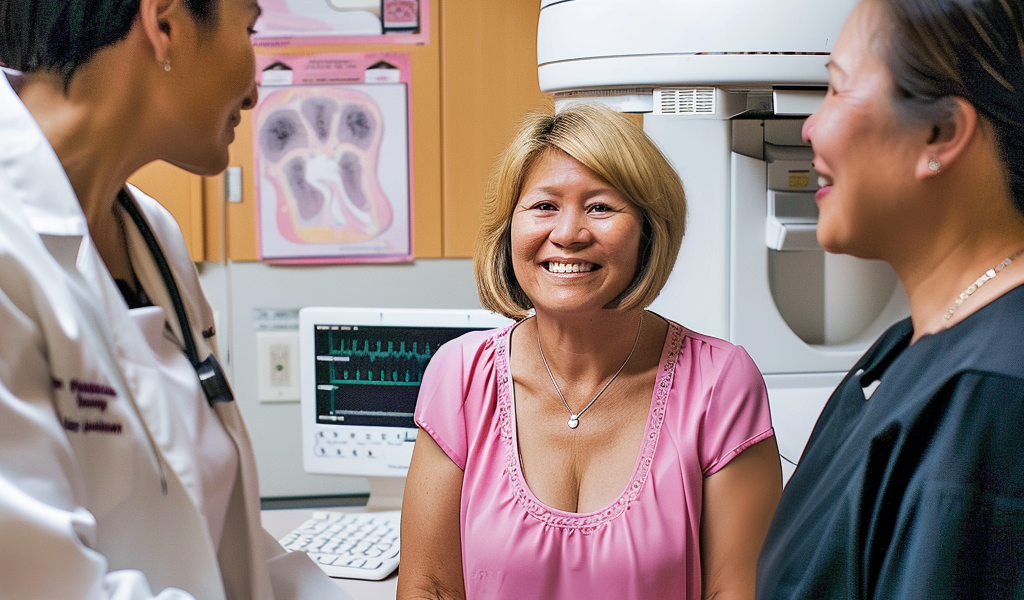Breast cancer continues to be a leading health concern in the United States, resulting in approximately 42,000 deaths annually among women. In response to this ongoing challenge, experts at the Sylvester Comprehensive Cancer Center, part of the University of Miami Health System, are implementing innovative strategies aimed at reducing mortality rates, addressing racial disparities, and enhancing treatment options for patients.
Breast cancer affects one in eight women in the U.S., emphasizing the urgent need for advancements in detection and treatment. The team at Sylvester is committed to utilizing a multifaceted approach that includes cutting-edge imaging technology, refined surgical techniques, targeted programs for high-risk women, and in-depth research into the biological mechanisms of cancer.
Dr. Susan Kesmodel, a leading figure in breast surgical oncology at Sylvester, highlights the evolving landscape of surgical options. “We are witnessing a significant shift towards less invasive surgical procedures for breast cancer treatment. For many women diagnosed with early-stage breast cancer, mastectomy is no longer the default option. Instead, lumpectomy has shown equivalent long-term survival rates,” she explained. This approach not only preserves more of the breast tissue but also enhances the quality of life for patients.
In cases where breast cancer is multifocal or multicentric, Dr. Kesmodel notes that two lumpectomies can be performed in conjunction with radiation therapy, thereby eliminating the need for a mastectomy in certain situations. This tailored approach to surgery is critical, as it takes into account the unique characteristics of each patient’s condition.
Furthermore, advancements in lymph node surgery are also noteworthy. Traditionally, many patients with breast cancer underwent extensive lymph node removal, which increased the risk of lymphedema. However, the current trend is towards minimizing lymph node removal, thus reducing the potential for this complication and improving postoperative recovery.
Cosmetic outcomes have improved significantly as well. Women now have the option for immediate breast reconstruction during their cancer surgery, whether it involves a lumpectomy or mastectomy. This development not only aids in physical recovery but also supports emotional well-being, allowing women to regain their confidence sooner.
Dr. Jose Net, the vice chair of Clinical Operations and director of the Division of Breast Imaging at Sylvester, emphasizes the importance of early detection. “Routine mammographic screening remains the most effective method to decrease breast cancer mortality rates. Early detection allows for the identification of smaller tumors that have not metastasized, making them easier to treat,” he stated.
Understanding breast density is also a crucial factor in assessing cancer risk. The FDA mandates that patients are informed about their breast density, a requirement that Sylvester has adhered to for over a decade. This information is vital as denser breast tissue can obscure tumors during imaging, potentially delaying diagnosis.
At Sylvester, a rigorous screening process is in place to identify women at high risk for breast cancer. Those classified as high risk are directed to the Breast Cancer Assessment Risk Evaluation (CARE) Clinic, where they receive personalized care tailored to their specific needs and risk factors. This proactive approach to patient care is essential for improving outcomes.
With an impressive annual volume of 31,000 mammograms, Sylvester employs state-of-the-art imaging technology to ensure accurate and timely diagnoses. The integration of advanced imaging techniques allows for better visualization of breast tissue and aids in the early detection of abnormalities.
As the fight against breast cancer continues, the experts at Sylvester Comprehensive Cancer Center remain dedicated to pioneering new methods of treatment and care. Their commitment to reducing mortality rates, enhancing patient experiences, and addressing health disparities reflects a comprehensive strategy that aims to transform the landscape of breast cancer treatment.





